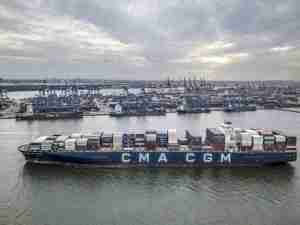S&P cuts Noble Group rating to junk; stock and bonds tumble
By: Reuters | Jan 07 2016 at 11:05 PM | Maritime
SINGAPORE/HONG KONG - Standard & Poor’s cut its credit rating on Noble Group to junk, adding to concerns about financing costs for Asia’s biggest commodity trader a week after a similar downgrade by Moody’s Investors Service and sending its stocks and bonds sliding.
Shares in Noble, which has been grappling with a rout in commodities and an attack on its accounting practices, fell as much as 10 percent on Friday to their lowest levels in seven years while its bonds tumbled 7-8 points.
The downgrades will put more pressure on Noble to increase funding secured with collateral as it will be less able to tap capital markets and will have to constantly roll over debt from banks. The company, with a market cap of $1.5 billion, has a total of $2.5 billion worth of loans due this year, according to data from Thomson Reuters LPC.
“We downgraded Noble because the company’s liquidity is below what we expect for a strong liquidity position, despite the sale of its agricultural unit,” S&P credit analyst Cindy Huang said in a statement, cutting the company’s rating to BB+ from BBB-. bit.ly/1RkJMOU
“Given the prospects for a prolonged slump in commodities prices, we expect lenders to take a more cautious view toward financing commodities businesses,” Huang said.
Noble said on Thursday the rating change was not expected to have a material impact on its operations. “To date, the increased collateral calls have been immaterial and below the previously indicated range of $100 million to $200 million,” it said in a statement.
It reiterated that once its planned sale of a 49 percent stake in Noble Agri to China’s COFCO International for $750 million closes, its rating metrics would substantially exceed those required of an investment grade.
Noble’s shares were last trading down 4 percent. They have fallen 74 percent since mid-February after blogger Iceberg Research questioned the company’s accounting practices. Noble defended its finances and in August a report by board-appointed consultant PricewaterhouseCoopers found no wrongdoing.
Iceberg said S&P’s move “validates one of our main arguments against Noble: this company has never been investment grade.”
Noble bonds due in 2020 were trading at 53/55 cents on the dollar and while its perpetuals were at 34/37 cents. Its credit default swaps are trading on an upfront basis and its CDS curve is inverted, indications that the market considers the debt as stressed credit.
In contrast to S&P and Moody’s, Fitch Ratings said on Thursday that Noble’s increased collateral requirements following a series of credit events in 2015 was manageable given its improved liquidity following asset sales.








